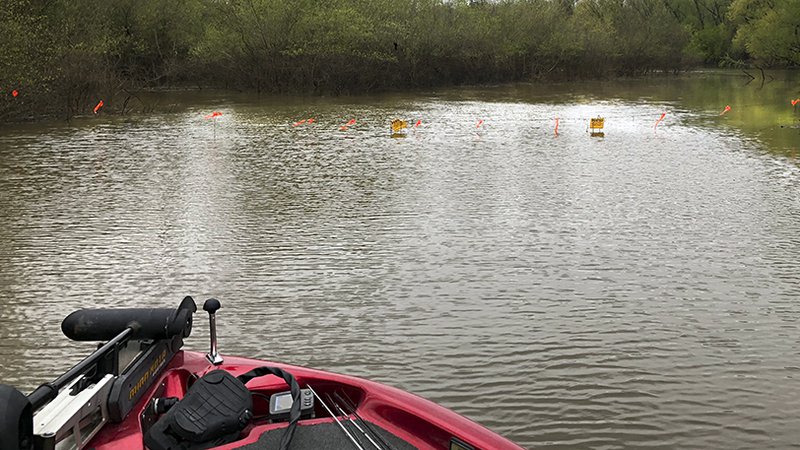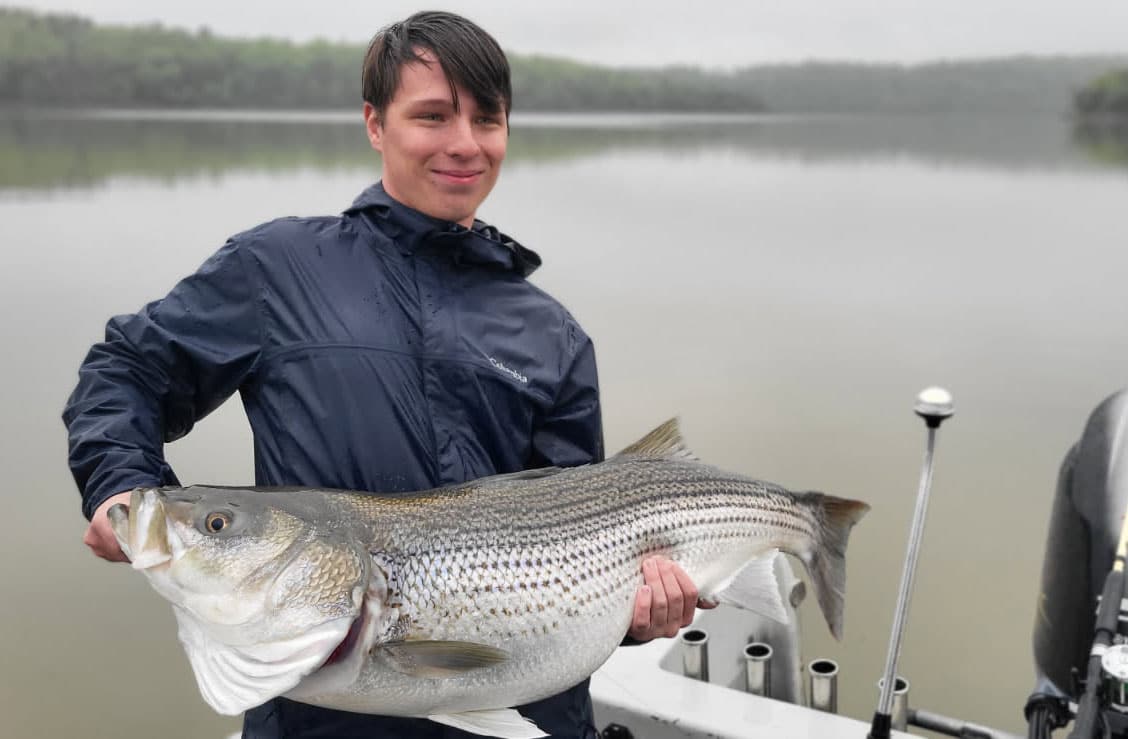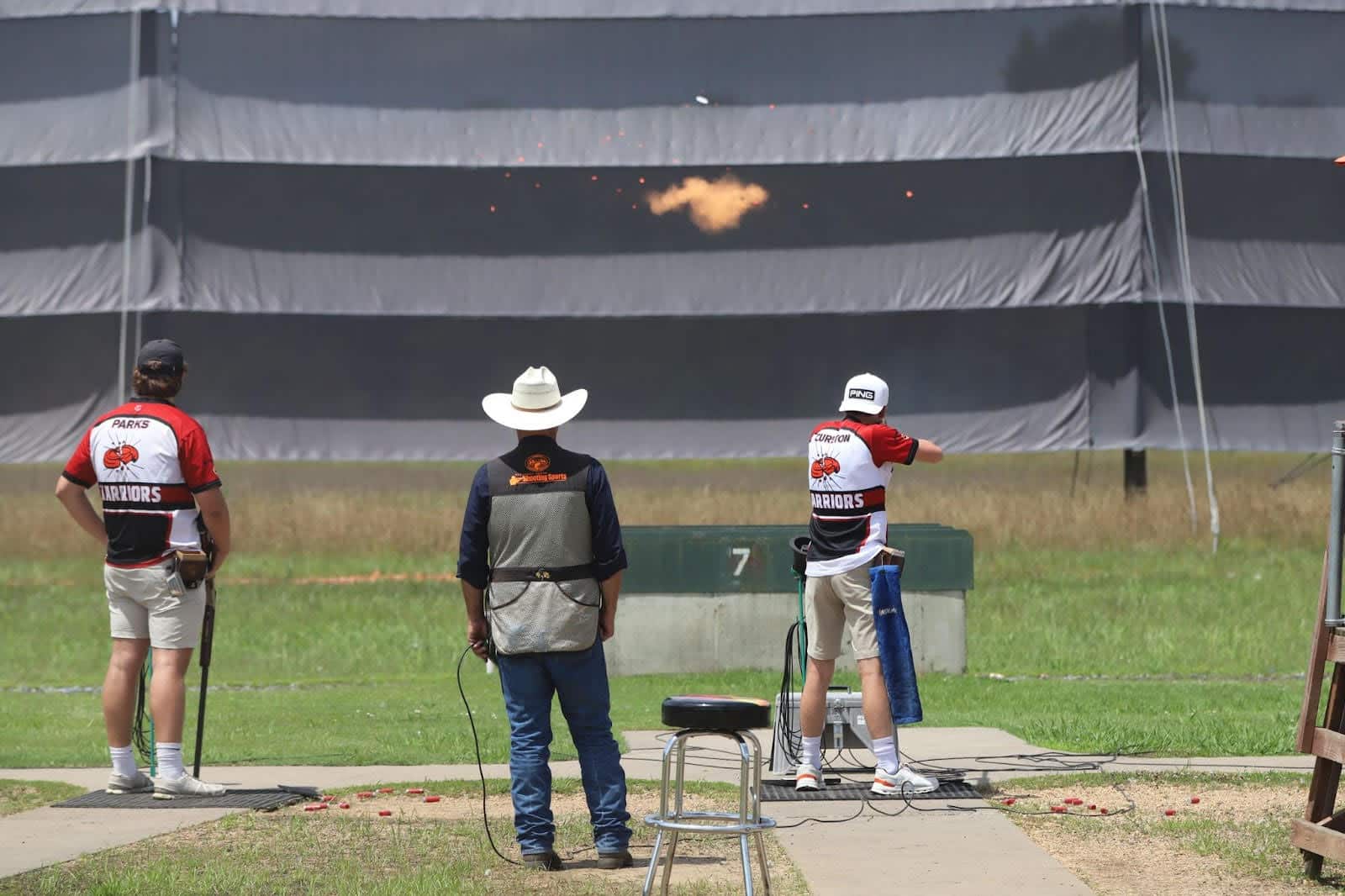Agency cooperation deals with dangerous barbed-wire line
BY Jim Harris
ON 05-16-2018

May 16, 2018
Jim Harris
Managing Editor Arkansas Wildlife Magazine
REYDELL – Barbed-wire fencing or any other obstruction to boating cannot be placed across navigable waters in Arkansas, per state law and sometimes federal law, depending on the water body. Not only is it illegal, but it can also present a safety concern to boaters. However, situations do arise at times where landowners or lessors of hunting and fishing property mistake their rights on waters that legally are considered navigable and open to the public.
Such was the case in April when a bass angler trying to fish on Little Bayou Meto found a barbed-wire line cutting off access to a backwater. Little Bayou Meto flows directly into the Arkansas River near this small Jefferson County community.
State and federal agencies came together to get the problem resolved. Arkansas Game and Fish Commission biologists, the AGFC’s Environmental and Legal divisions, the U.S. Army Corps of Engineers and other entities were able to rectify the situation in favor of Arkansas anglers.
“It was good coordination between our divisions, the Corps [of Engineers] and others, and done in a timely manner, a little over two weeks,” said Colton Dennis, who supervises the AGFC’s Black Bass Program and who was initially contacted by the angler, who was confused as to why the area would be closed. The area has been fished regularly by the public in the past, especially when the river is high, according to Diana Andrews, the Fisheries district supervisor over this region of Arkansas.
The angler provided photos of the blocking wire, and Dennis forwarded that information up the chain at AGFC, which included Justin Stroman, an environmental coordination biologist who works often alongside the U.S. Army Corps of Engineers on various issues. Stroman’s first thought was that these backwaters would constitute “a section 10 of the federal Rivers and Harbors Act water body,” as it appeared it was a backwater directly connected to the Arkansas River. State law, Arkansas vs. McIlroy, also defined navigability, saying that a landowner – even one owning both sides of the river or who has title to the riverbed – does not have a right to restrict the public from using the surface water on a navigable stream.
Stroman suggested contacting the Arkansas Attorney General’s office and the Commissioner of State Lands, along with the U.S. Army Corps of Engineers enforcement.
John Marks in the AGFC Legal Division concurred with Stroman’s assessment, based on what was known, that the water appeared to qualify as navigable “under relevant legal tests. If navigable, the state owns everything below the ordinary high water mark, and this fence should be removed. It may also be subject to the federal regulatory jurisdiction of the (Corps of Engineers).”
Stroman said it eventually was both a federal and state issue. While the person who placed the barrier was not known, it was determined that the land in question adjacent to the stream recently had changed hands. Vincent Gregory of the Corps made contact with the new owner, who said he would have the fencing removed.
The AGFC checked on the problem May 8 and confirmed that the barbed wire had been removed.
Not only was the barrier in question Uninformed landowners and others who may use the adjacent waterway need to determine its status as navigable before putting up dangerous lines across it to impede access.
Stroman said, “Somebody could have been running on plane in their boat, maybe early in the morning in fog, and it could have snuck up on them and basically clothes-lined them.”
Recent News

Arkansas Wildlife Weekly Fishing Report
Apr. 24, 2025

Contenders take aim as shooting sports regionals begin
Apr. 23, 2025
Subscribe to Our Weekly Newsletter E-mails
Don’t miss another issue. Sign up now to receive the AGFC Wildlife Weekly Newsletter in your mailbox every Wednesday afternoon (Waterfowl Reports are published weekly during waterfowl season and periodically outside the season). Fishing Reports arrive on Thursdays. Fill in the following fields and hit submit. Thanks, and welcome!
